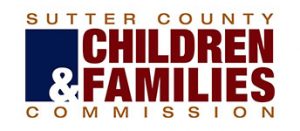La Maida Project, Sutter County Children & Families Commission, and the Center for Nature and Health at UCSF
ACEs Aware grantees play an integral role in the initiative’s mission to reduce toxic stress across California communities. This month, we asked three grantees to share new learning opportunities and local connections that have emerged as a result of their ACEs Aware grant.
“We have learned that much of health happens outside of the clinic walls, and that nature-based strategies have the potential to be a community-based mechanism to deal with trauma.”
3 Questions with the Center for Nature and Health at UCSF
What learning opportunities have emerged while executing your ACEs Aware grant activities?
Our grant explores nature-based tools for primary care providers on the front lines addressing toxic stress. We seek to support those providers by creating a sustainable system to coordinate care between clinics and the outdoors that can respond to current and future trauma. Learning opportunities while executing our ACEs Aware grant include:
- The opportunity to review the physiology and neuroscience of nature as a tool to prevent and treat toxic stress.
- The opportunity to think through concrete strategies and management guidelines for clinical teams to incorporate excursions into nature as a treatment and healing resource within their practices.
- Case studies and clinical examples of best practices currently in use in California.
How has your work shifted or changed as a result of your ACEs Aware grant?
We have learned how so much of health happens outside of clinic walls, and that nature-based strategies have the potential to be an effective, community-based mechanism to deal with trauma. Clinicians have varying degrees of understanding about the connection between exposure to nature and the potential for healing. However, nature is not just a place; it is an array of organizations and individuals working to expand access to nature and to help mediate meaningful experiences in natural places. These organizations have the potential to work in coordination with clinicians to prevent and treat ACEs, and their interest and capacity to collaborate with clinicians must be assessed and supported.
What connections and collaborations have you made locally in the trauma-informed care community?
New relationships formed during the course of this grant have broadened our thinking and approach. We are working with community leaders who have helped us understand how historical inequities in access to nature, compounded with recent park closures, may exacerbate the already disproportionate impact of COVID-19 related stressors on health equity. We have discovered preexisting models of trauma-informed care in nature, which has always been a community-based resource for relieving toxic stress. Connecting with leaders in the ACEs Aware movement has taught us the ways in which other networks of care are developed and how nature can fit into those frameworks.
3 Questions with La Maida Project
What learning opportunities have emerged while executing your ACEs Aware grant activities?
As a young organization, it is exciting to be a part of the ACEs Aware provider engagement activities. We have learned a great deal about the power of collaboration and coordination at every level. The landmark ACEs study from the Centers for Disease Control and Prevention and Kaiser Permanente is now almost 25 years old, but the necessary and real shifts in how we view trauma and healing take time, research, and thoughtful implementation. The work from the California Department of Health Care Services and the Office of the California Surgeon General has provided La Maida Project and countless other cross-sector organizations the opportunity to form a bonded community that has a mutual interest in changing the landscape of health care in California.
La Maida Project is also hosting a series of webinars in May focusing on trauma, healing, and cultural transformation. To learn more about each webinar and for registration information, click here.
How has your work shifted or changed as a result of your ACEs Aware grant?
While our programs focus on creating trauma-informed cultures in K-12 education and child welfare agencies, our messaging and framing of the issues is primarily public-facing. We are reframing mental health messages with an ecological lens, focused on empowerment and connection that requires those setting the tone for their organizations, such as leaders, managers, providers, and direct care workers, to be the change agents. The ACEs Aware grant has been an incredible opportunity to engage directly with those who can influence how organizations think about health and deliver trauma-informed care.
What connections and collaborations have you made locally in the trauma-informed care community?
Midway through our ACEs event planning, we connected with Gary Taylor from The Raise Foundation, who shared with us his experience as a fellow grantee. Gary connected us with other groups that are doing great work in this area and shared resources that were invaluable to our planning process. We have also been working closely with Moira O’Neil from FrameWorks Institute on how best to communicate our ideas to an ACEs-informed community. Her background in communications and familiarity with trauma and healing has been enormously helpful in helping us think through how we can tailor our language to better articulate La Maida Project’s mission to our target audience and the ACEs community at large.
“We have learned a great deal about the power of collaboration and coordination at every level.”
3 Questions with Sutter County Children & Families Commission
What learning opportunities have emerged while executing your ACEs Aware grant activities?
As soon as our ACEs Aware communications grant was funded, many pediatric providers in our community began leaning on Sutter County Children & Families Commission (SCCFC) for resources and tools to address the exacerbated childhood traumas seen during office visits due to COVID-19. This opened up organic conversations between SCCFC and pediatric providers about the ACEs Aware mission and how it can support healing from the secondary effects of the pandemic.
How has your work shifted or changed as a result of your ACEs Aware grant?
Since the enactment of Proposition 10 in 1998, SCCFC has worked directly with human services agencies and organizations to support services and caregiving capacity. The ACEs Aware funding opportunity aided in solid strategies to mitigate and assist the community. The health and welfare of families remains the focus of our community work, and recognizing damage done by childhood traumas guides our work to strategically prevent and reduce the damage.
What connections and collaborations have you made locally in the trauma-informed care community?
Dr. Olga Gonzalez, a pediatrician at Feather River Tribal Health, recognized how the COVID pandemic is effectively an ACE. Dr. Gonzalez became certified to provide ACE screenings, and is now our community champion for ACEs, working to encourage other providers to become ACEs Aware. By providing screenings and interventions to traumatized children and families, Dr. Gonzalez is helping change the trajectory of generational adversity.


